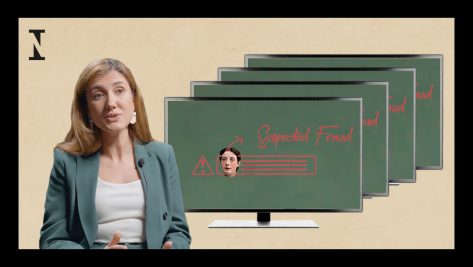Few issues are as close to the hearts of current and former IE students as jobs and professional success. And that issue is the one that is attracting most attention from economists in the wake of the crisis. The unsettling question is: Where is the future taking us in terms of employment?
The main factor determining employment, as anyone who has made it through a managerial economics course knows, is growth. And herein lies the first problem. The world going forward is likely to be a much slower growth world in which fewer jobs will be generated. However, if the population is growing more slowly and the labor force is shrinking, this could be a non-issue from a macro perspective.
On a micro level there are other trends that could transform the job world. One is technological change. Economists have always welcomed technology in the belief that it would generate higher productivity, which in turn, would yield higher income and more jobs. But the financial crisis has left us with a legacy of high unemployment, unusually high long-term unemployment, and reduced participation rates, especially for prime-aged men. Is that just coincidental, or is it a trend? What does it mean?
Several years ago, two economists (Lawrence Katz and Robert Mago) documented how employment in manufacturing had been “hollowing out” increasingly for some decades. Jobs were growing for highly skilled workers and unskilled workers, but the “middle” jobs were disappearing. This process appears to be intensifying as technology progresses and replaces jobs in manufacturing, which 50 years ago were the well paid, secure work of a middle class that was neither highly skilled nor unskilled.
These are the workers who are increasingly out of jobs today. The wages of typical workers have been flat for some time in the United States, the UK and Germany, maybe because companies are automating more at the expense of labor. Lawrence Summers at Harvard predicts that one in seven prime working-aged men could be out of work in the United States within a decade, compared to one in 20 in the 1960s.
Is this a concern for the typical IE MBA? If it were only low-skilled jobs that were being replaced, it might not concern us, beyond the obvious implications for inequality, as wages and employment at the bottom and middle of the skills ladder fall, in addition to, the social instability it could bring. But as technological change advances, its repercussions may reach the top rungs of the ladder.
Lawrence Summers at Harvard predicts that one in seven prime working-aged men could be out of work in the United States within a decade.
The latest information technologies are reaching upwards into many white-collar occupations, where automation replaces brain-work. Two MIT economists, Erik Brynjolfsson and Andrew McAfee, say that we are immersed in a “Second Machine Age” which could be deeply disruptive and destroy jobs in many skilled professions. Even many cognitive jobs will be replaced by computing. C. Frey and M. Osborne have calculated the probability that computerization would replace jobs over the next decade in a series of professions. The “safest” jobs, i.e. those least likely to be replaced, were recreational therapists, dentists, athletic trainers and church clergy. Those most likely to disappear, with a probability of near or above 90%, were real estate sales agents, accountants, auditors, retail salespersons and telemarketers.
Where does this leave us? In a sense, this type of technological change takes us back to our roots. It was always true that the most creative and innovative had the best chance of getting ahead, at least in meritocratic countries and organizations. In the brave new world of “brainy” computers and automated tasks, this will become ever more a reality. Xavier Sala I Marti from Columbia University says that his key advice to his students is always the same: if you want a good professional future, learn to do a job that a machine cannot do. Creative thinking, figuring out better ways to do things, and inter-personal skills are tasks that computers have not yet been able to “learn”. If we inside the IE and those of you now outside can continue to perfect your skills in those areas, we should survive the Second Machine Age nicely. Of course, we’ll need to figure out what policies we will need to combat rising inequality and unemployment going forward. But that will have to be the subject of another article.
© IE Ideas.











